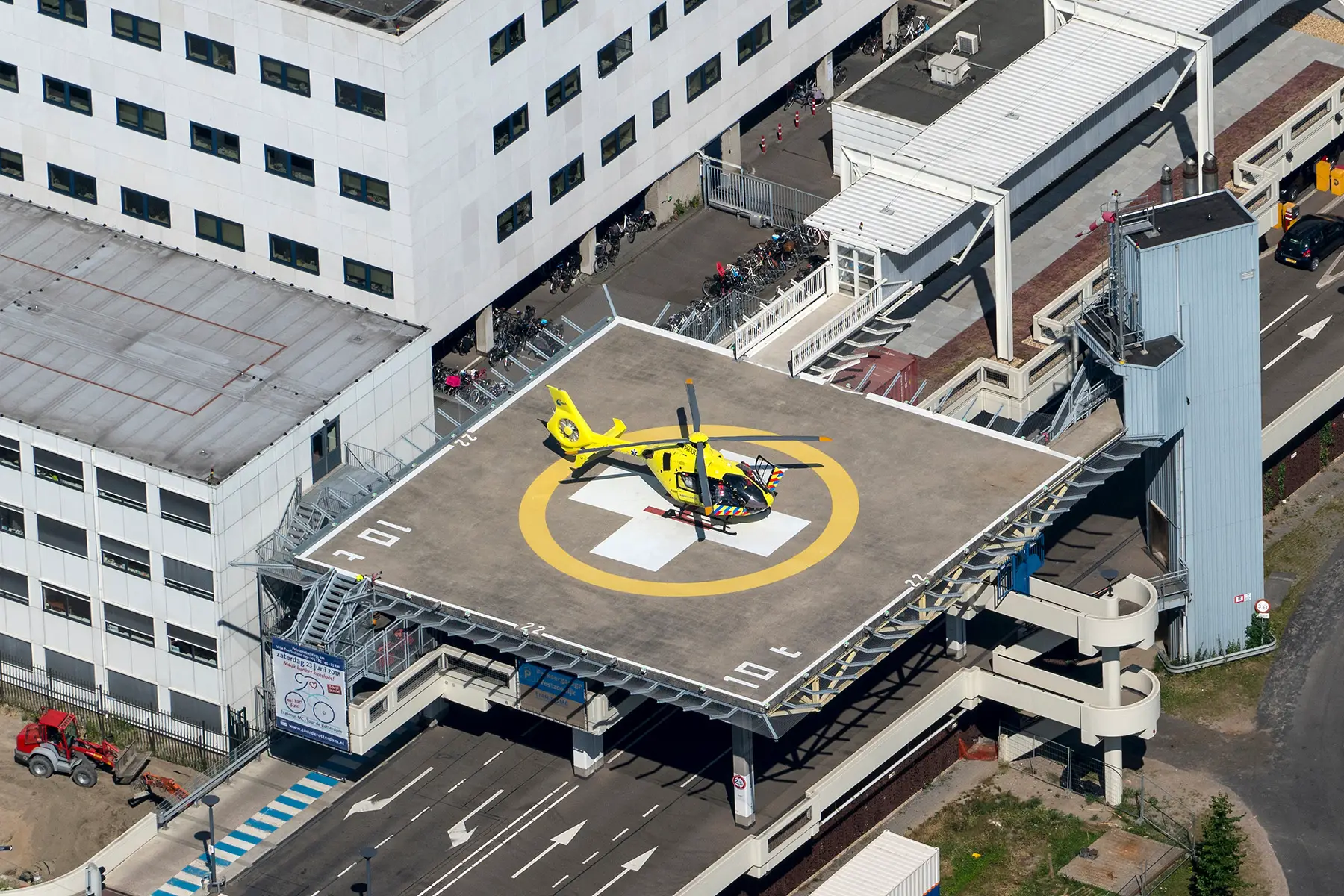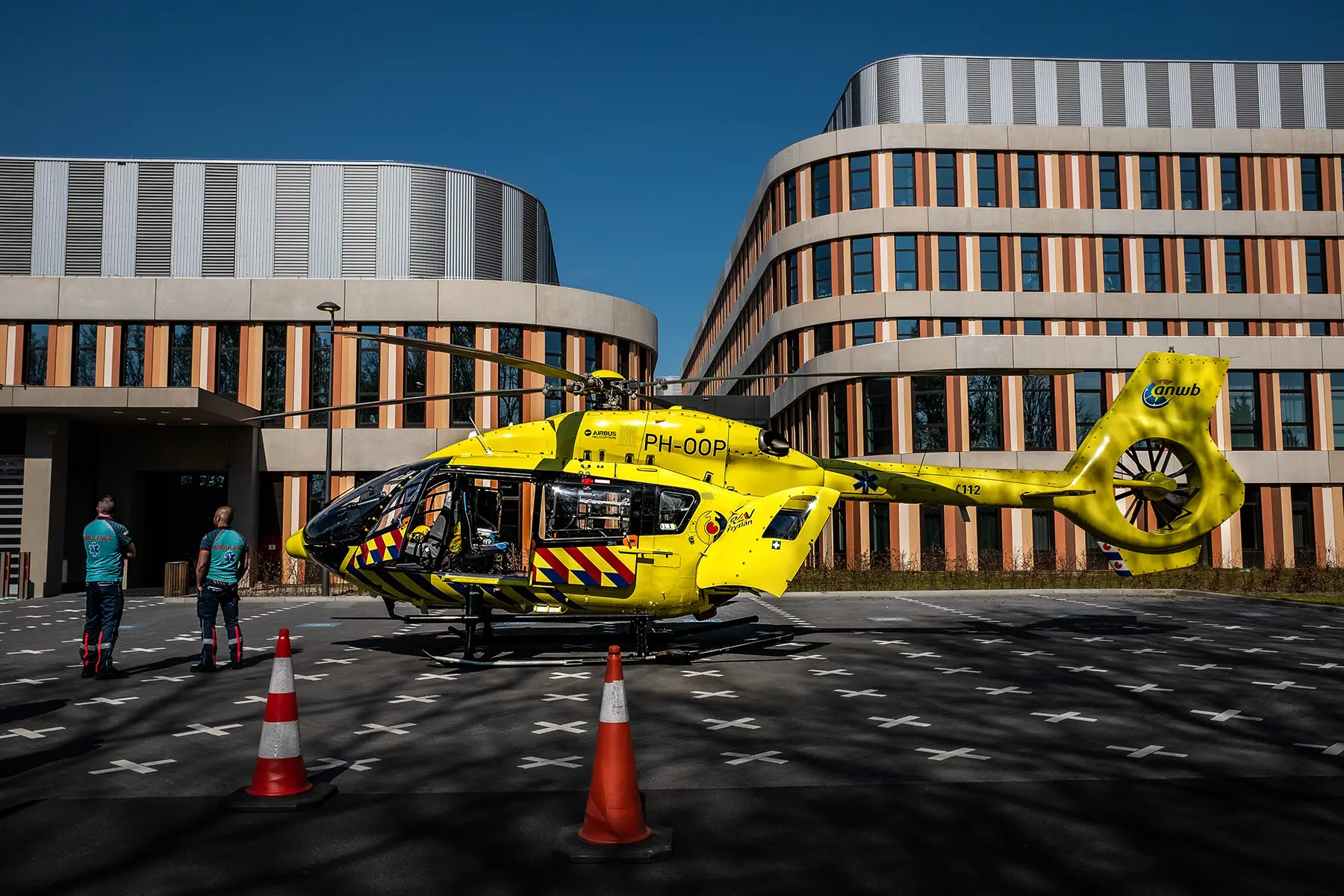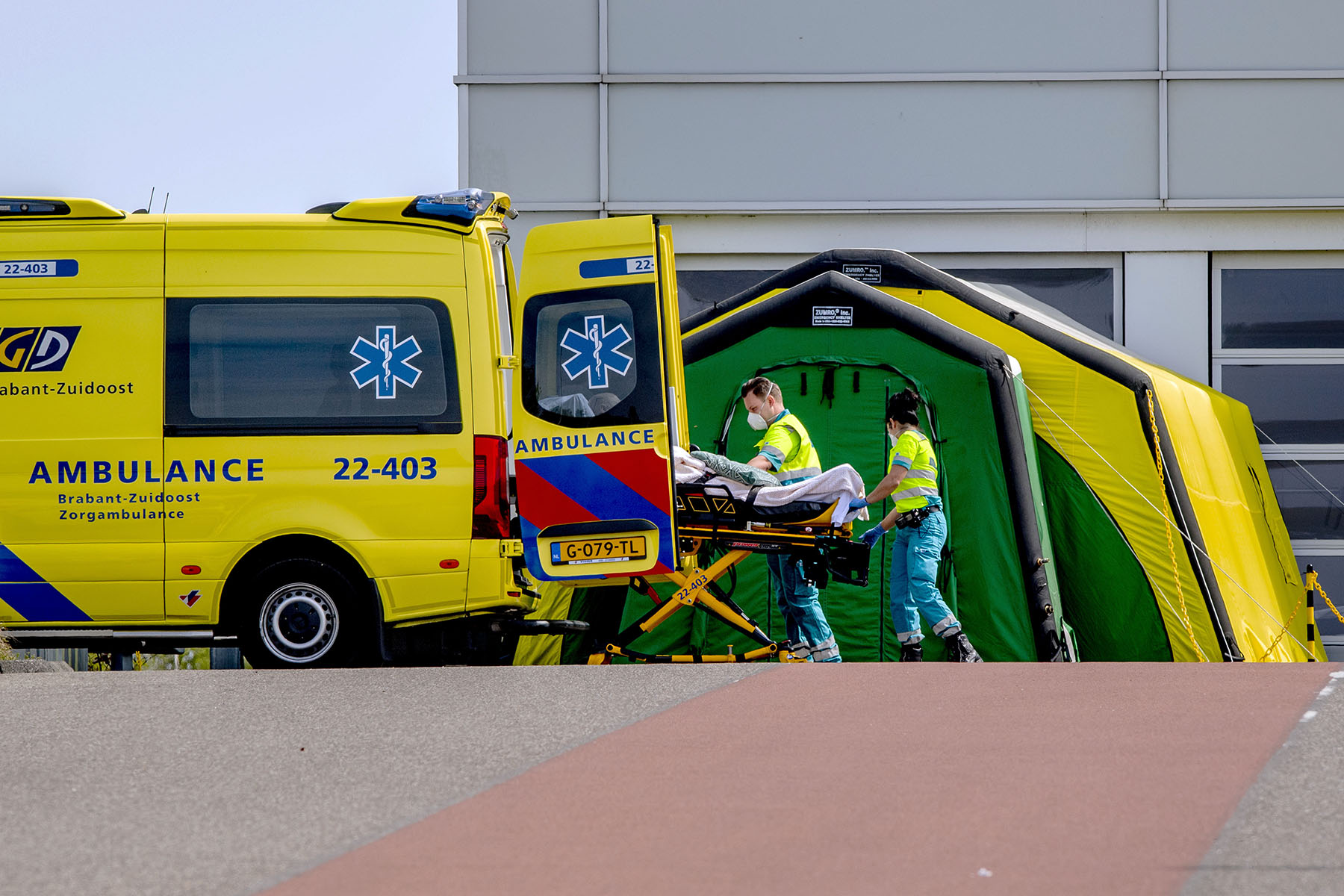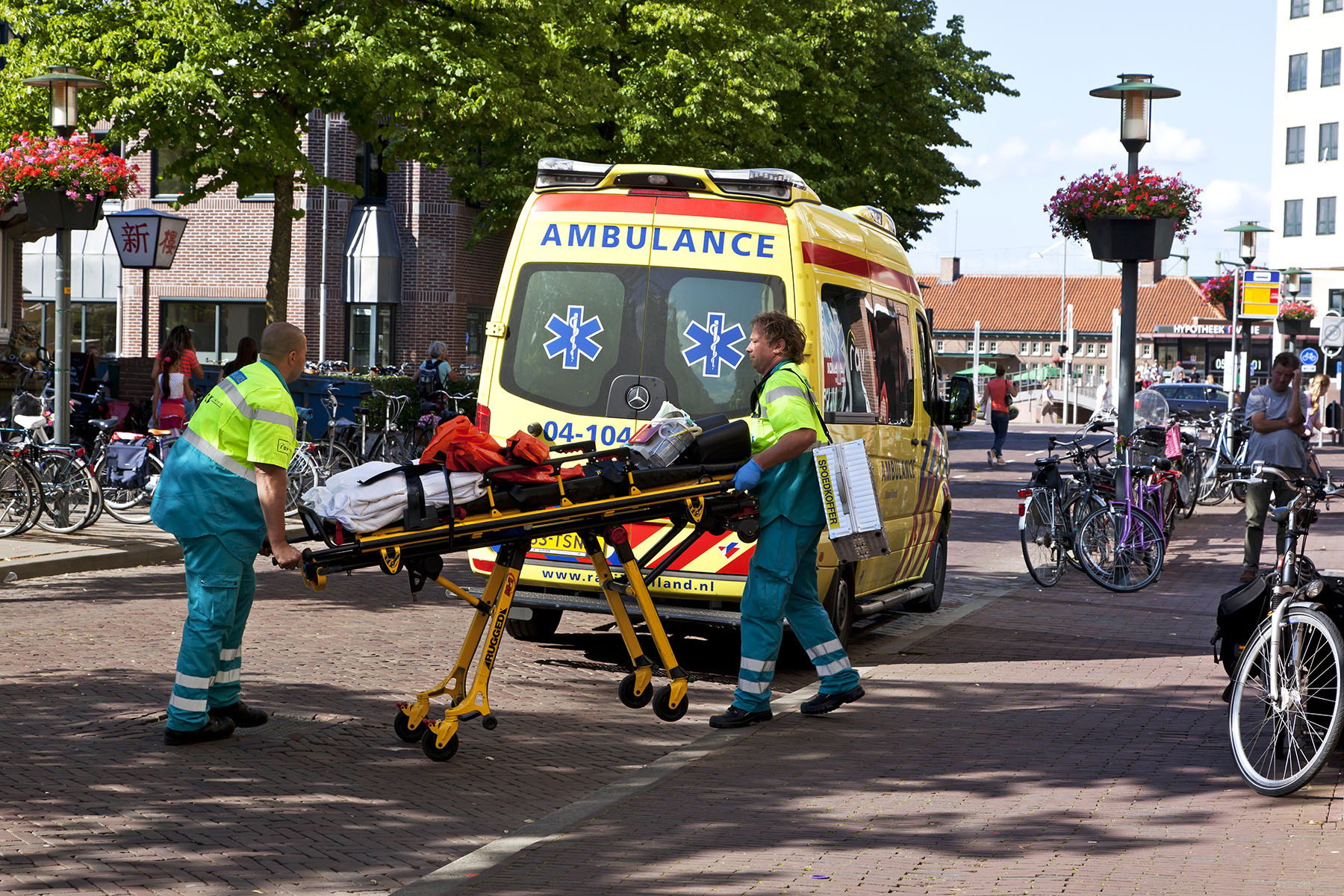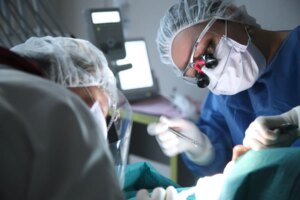The Dutch healthcare system is reliable, efficient, and accessible to nearly all residents, including expats. Whether you’re seeing a GP for a routine check-up or need a referral to a specialist, the process is straightforward once you know the basics. We’ll outline how to find a doctor, what to expect at appointments, and how much it all costs – with or without insurance.
Continue reading for the following information:
- Overview of doctors in the Netherlands
- Who can see a doctor in the Netherlands?
- How to find a doctor near me in the Netherlands?
- How to see a doctor in the Netherlands: step-by-step
- How much do doctor visits cost in the Netherlands?
- Overview of Dutch doctors’ services
- How to complain about a doctor in the Netherlands
- Practical medical words in Dutch
- Useful resources
ONVZ
Looking for expat-friendly insurance in the Netherlands? Try ONVZ, a Dutch health insurance company that provides broad coverage for you and your family so you can start your new Dutch life with peace of mind. Calculate your premium online with just a few clicks. For expert guidance and freedom of choice, choose ONVZ.
Overview of doctors in the Netherlands
The Netherlands has one of the best healthcare systems in the world, covering nearly 99% of its residents, including expats. The system is funded through government-regulated private health insurance, which ensures that everyone can access a broad range of medical services, including doctor visits (dokter) and emergency care.
According to the EC 2023 country health profile, the Netherlands has relatively few doctors compared to the rest of the EU. In 2021, there were 3.9 doctors per 1,000 residents (EU average: 4.1). Nearly a quarter of these are family doctors, which translates to 6.7 GPs per 10,000 patients (2022).
That said, the number of doctors can vary a lot depending on the location. For example, Utrecht and parts of Gelderland had more than 7.3 GPs per 10,000 inhabitants, while parts of Noord-Brabant had less than 6.1 (Nivel, 2022).

In the Netherlands, all doctors must be registered in the BIG-register (Beroepen in de Individuele Gezondheidszorg) and meet the standards set by the Ministry of Health, Welfare, and Sport (Ministerie van Volksgezondheid, Welzijn en Sport – VWS).
Family doctors or GPs in the Netherlands
Family doctors or general practitioners (GPs – huisarts) are usually the first point of contact for any health issues. They work either alone or in group practices (huisartsenpraktijk), and you are free to choose whichever doctor you prefer. However, they must be located close to your home.
Standard opening hours are from 08:00 to 17:00, Monday to Friday, though this can vary depending on the doctor. Most health centers are closed on weekends and public holidays.
GPs deal with routine medical issues, conduct basic tests, and coordinate follow-up treatments. They also hold and maintain your medical records and can refer you to other specialists and treatment centers if needed.
Medical specialists in the Netherlands
If you need more specific care, the next step is usually a medical specialist (medisch specialist). From dermatologists to neurologists, the Netherlands has a wide-ranging network of specialized doctors who are easy to access, even for newcomers.
Specialists usually work in hospitals or private clinics. Opening hours can vary significantly depending on the doctor. Public doctors offer consultations between 08:00 and 17:00, Monday to Friday, whereas private physicians typically work from 08:00 to 18:00.
You typically need a GP referral (doorverwijzing) to see a specialist in the public sector. Private (i.e., non-contracted) doctors often accept patients without a referral.
Who can see a doctor in the Netherlands?
Everyone can access medical care to some degree or another, including asylum seekers, refugees, and tourists. However, for non-urgent medical help, you have to pay large out-of-pocket costs or have health insurance coverage – either Dutch or international.
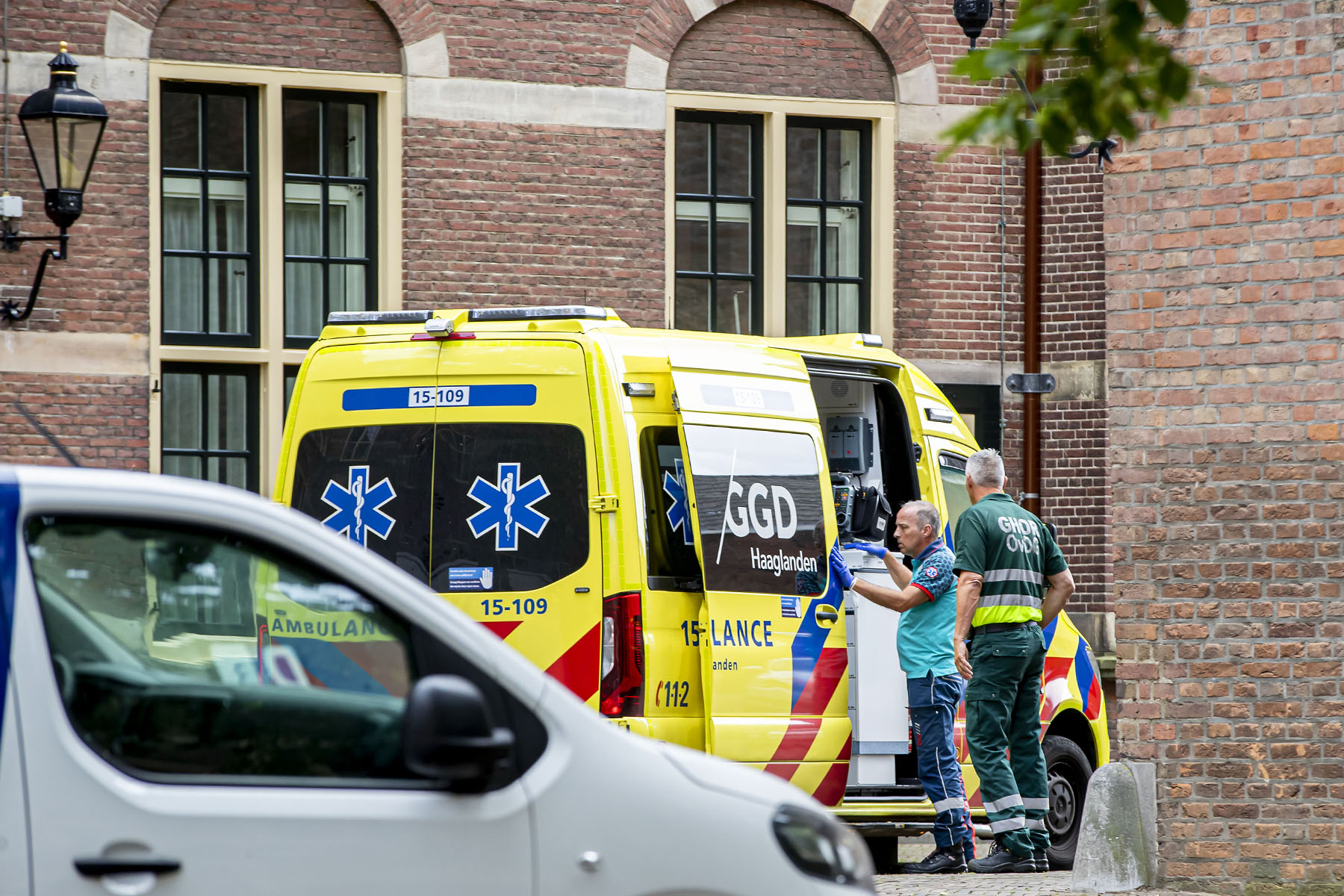
Our article on health insurance in the Netherlands covers the topic (and costs!) in more detail, but basically, there are both contracted and non-contracted doctors. While they both offer the same levels of quality care, the difference is in the insurance coverage and availability.
The Dutch health insurance funds will form contracts with a number of healthcare providers based on quality and price. While consultations with contracted doctors are fully covered, they often have longer waiting times and more rushed exams. Non-contracted doctors, on the other hand, cost you more but have more flexible appointment scheduling and longer, personalized visits.
How to find a doctor near me in the Netherlands?
If you are in a life-threatening situation, call 112 for an ambulance. This is the free pan-European number for any type of emergency. You can also go to the nearest hospital emergency room (spoedeisende hulp).
If your situation is less immediate (and more you looking for information), you can find Dutch doctors and GPs listed on ZorgkaartNederland. If you’re uncomfortable speaking Dutch, you can also find English-speaking doctors on websites like Doctena and Mobi Doctor (for doctors in Amsterdam).
For medical issues outside regular opening hours, you can contact the nearest out-of-hours GP service (huisartsenpost). These are open from 17:00 to 08:00 on weekdays, from Friday 17:00 to Monday 08:00 during weekends, and 08:00 to 08:00 on public holidays. Alternatively, you can reach out to the Central Doctors’ Services (Centrale Doktersdienst) at 0900 1515.
I need to see a doctor in Amsterdam
The Dutch capital of Amsterdam has several English-speaking doctors who’ll see tourists or expat patients on short notice or offer 24-hour emergency care. These include:
- Amsterdam Tourist Doctors
- Central Doctors at Amsterdam Central Station
- GP urgent care Amsterdam
- Expat Medical Center
You can also schedule an online video appointment with a doctor in Amsterdam using Mobi Doctor.
How to see a doctor in the Netherlands: step-by-step
Step 1: Register with your preferred local doctor
In the Netherlands, residents must first register with their local GP. You are free to choose any doctor you want, and you can switch physicians freely. However, your doctor must be located close to your home.

Most GPs allow you to register by phone or in person at the clinic. You will need to provide a valid ID, your citizen service number (BSN), and your health insurance details. After that, you may have an initial doctor’s appointment to review your medical history. If you have them, make sure to bring your medical records, along with a list of medications you are using.
Step 2: Book a doctor’s appointment
While some GPs have specific time slots for walk-in sessions (inloopspreekuur), most require you to schedule an appointment in advance. You can do so with a quick phone call to the individual medical center or using an online service like Doctena. Specialists don’t do walk-ins unless it’s for urgent medical situations.
Waiting times for GP appointments are reasonable; you can often get a next-day appointment or, at worst, within a week. If you don’t show up for an appointment or cancel with less than 24 hours’ notice, your doctor may charge you for the appointment.
Step 3: Visit the health center
When you go to the scheduled appointment, you have to let the receptionist know you are there. You can then take a seat in the waiting room.
It is not uncommon for you to wait beyond your scheduled appointment time. Consultations usually last only 15 minutes. Home visits are not common in the Netherlands, but can be arranged if the doctor feels that it is necessary.

How to talk to Dutch doctors so they listen
The Dutch are quite direct, and this doesn’t stop with friends, family, and colleagues. Doctors in the Netherlands may be blunt as well, but don’t take it as unfriendly; they simply want to understand your situation and make sure you understand the treatment options. If you communicate with them the same way, you have a better chance of being heard and getting something stronger than paracetamol.
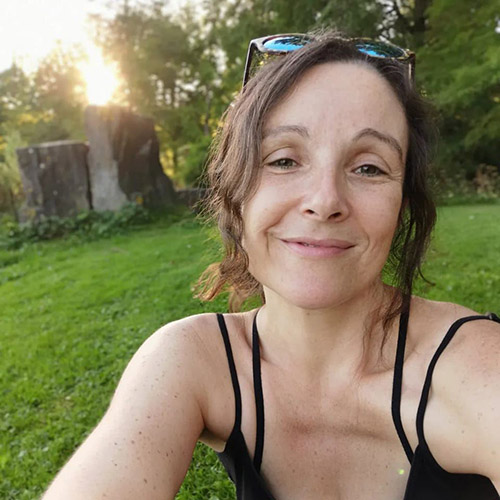
Marie-Charlotte Pezé
Editor in Chief at Expatica
Insider tip: How to talk to doctors efficiently
In her book Dutched Up, Olga Mecking writes: “When explaining your illness, double the amount of time you’ve been sick, triple your symptoms – and that equals help.”
While we recommend you stay calm, you should also not hesitate to lie, exaggerate, or flatter to get your meds. For example, use your very cute child to get the flu shot right away instead of having to wait several weeks.
How much do doctor visits cost in the Netherlands?
Without proper health insurance, doctor or GP consultations cost around €175, while on-call GP services can set you back €220+. Of course, this also depends on the services provided; you may also face additional fees for lab work, imaging, and prescriptions. Specialists typically charge around €100–200+, also depending on the services provided.
Dutch health insurance covers essential treatments, including doctor visits and specialist care. However, patients must first pay the yearly “Own Risk” deductible (eigen risico) before their medical costs are covered. Although this deductible does not apply to GP visits (which are completely free), it is applicable to specialist care and prescription medications.
Moreover, depending on your insurance policy, your insurance provider may provide less coverage when you go to non-contracted health services. See our article on health insurance for more details.
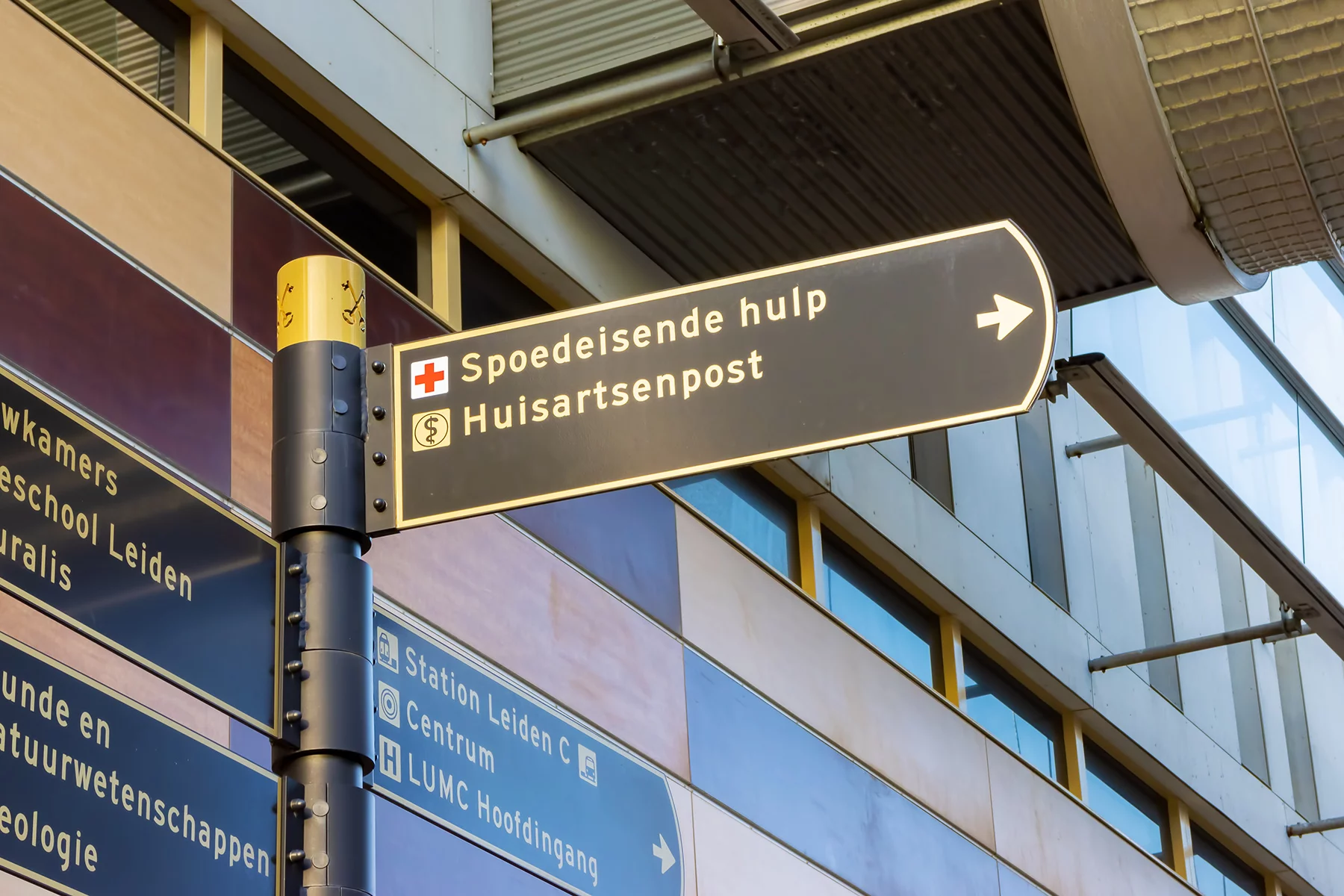
Do I need health insurance in the Netherlands?
Yes. Our article on Dutch health insurance explains everything more extensively, but as a quick summary:
- Health insurance is mandatory for all residents
- Statutory insurance covers most essential treatment, but not all. Patients will need to pay large out-of-pocket costs or take out private (top-up) insurance to cover it for them.
There are many private health insurers in the Netherlands, and it’s worth shopping around to find the best deals. Aside from the home-grown insurance providers, there are also international insurers who cater specifically to expats. These are ideal for residents who travel outside the country a lot or prefer expat-focused care:
Overview of Dutch doctors’ services
Prescription medications
If necessary, the doctor may prescribe you medication, which you can pick up from any pharmacy (apotheek) in the Netherlands. While medicines are covered by public health insurance, you’ll need to pay the costs yourself until you’ve depleted the Own Risk deductible.
To find your nearest pharmacy, you can use any search engine or check the website Apotheek.nl. This site also has a search tool for finding out-of-hours emergency pharmacies (dienstapotheek).

Expats may be frustrated to learn that you’ll only get antibiotics as a last resort. While Dutch doctors will always prescribe necessary medication, most try to find solutions that don’t require a prescription. As such, your physician may recommend trying paracetamol and homeopathic remedies first.
How to complain about a doctor in the Netherlands
There are several ways to file an official complaint about a doctor in the Netherlands. However, you must first contact the doctor or the health clinic to express your concerns. If this doesn’t resolve the issue, you can escalate the matter to a disputes committee (geschilleninstantie).
Depending on the severity of your complaint, you may also reach out to the Central Disciplinary Committee for the Healthcare Sector (Tuchtcollege voor de Gezondheidszorg). And if you need advice on what to do next, you can contact the National Healthcare Report Center (Landelijk Meldpunt Zorg – LMZ).
All investigative proceedings are conducted in Dutch.
Practical medical words in Dutch
Most doctors in the Netherlands can communicate in English. However, it is a good idea to have a phrasebook or a translator app on your phone in case you need to explain more complicated health issues.
You’ll also want to remember some of these medical words in Dutch:
| English | Dutch |
| General practitioner | huisarts |
| doctor’s office | dokterspraktijk |
| appointment | afspraak |
| pain | pijn |
| headache | hoofdpijn |
| stomach ache | maagpijn or buikpijn |
| back pain | rugpijn |
| fever | koorts |
| cough | hoest |
| prescription | voorschrift |
| painkiller | pijnstiller |
Useful resources
- Rijksoverheid Zorgverzekering – government website with information about the Dutch healthcare system
- Zorgverzekeringslijn – government-backed helpline for questions related to Dutch health insurance
- Zorgkaart Nederland – map with all doctors and other healthcare providers in the Netherlands


